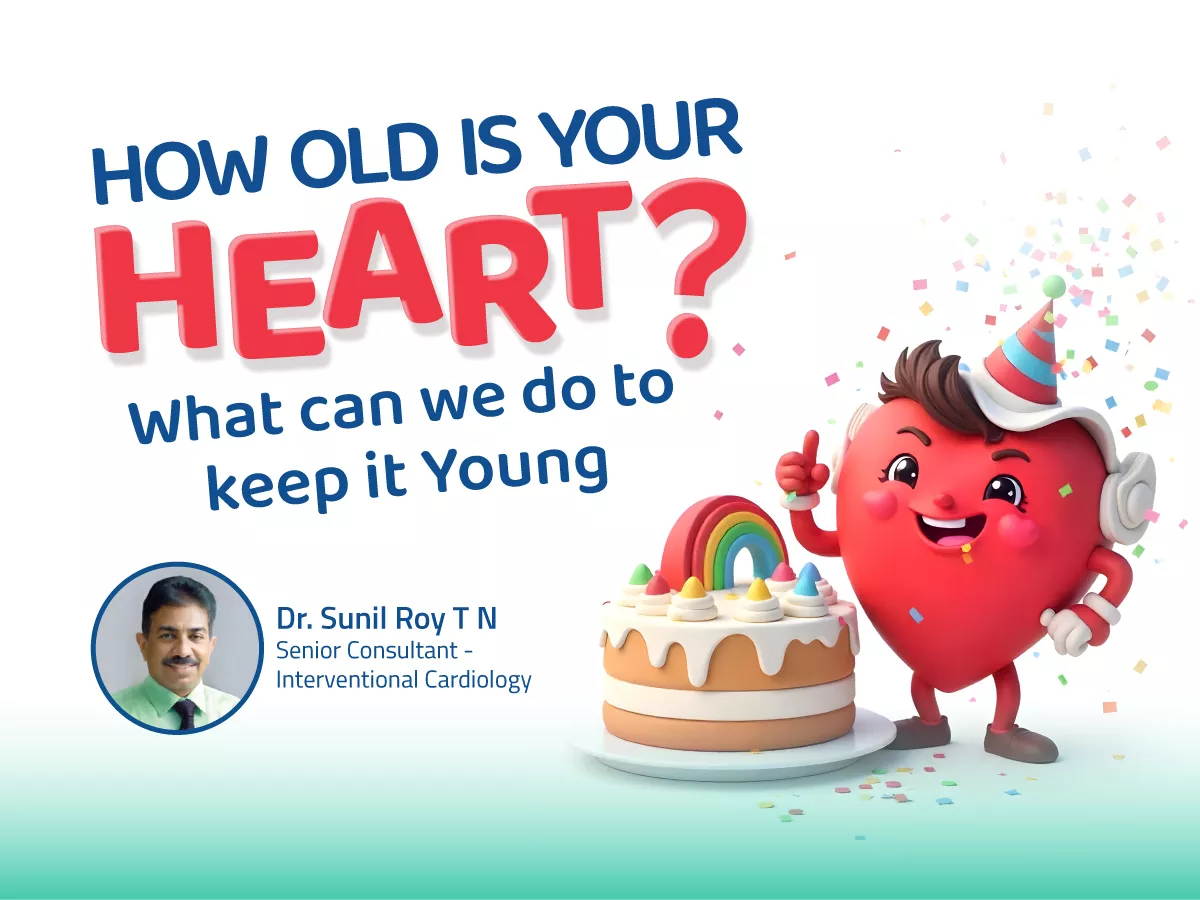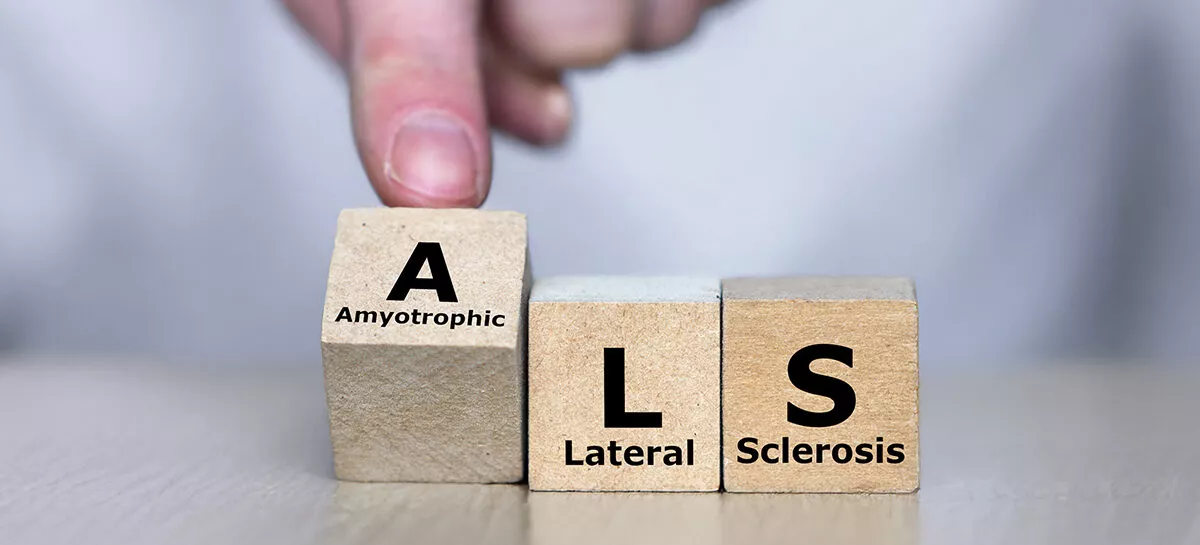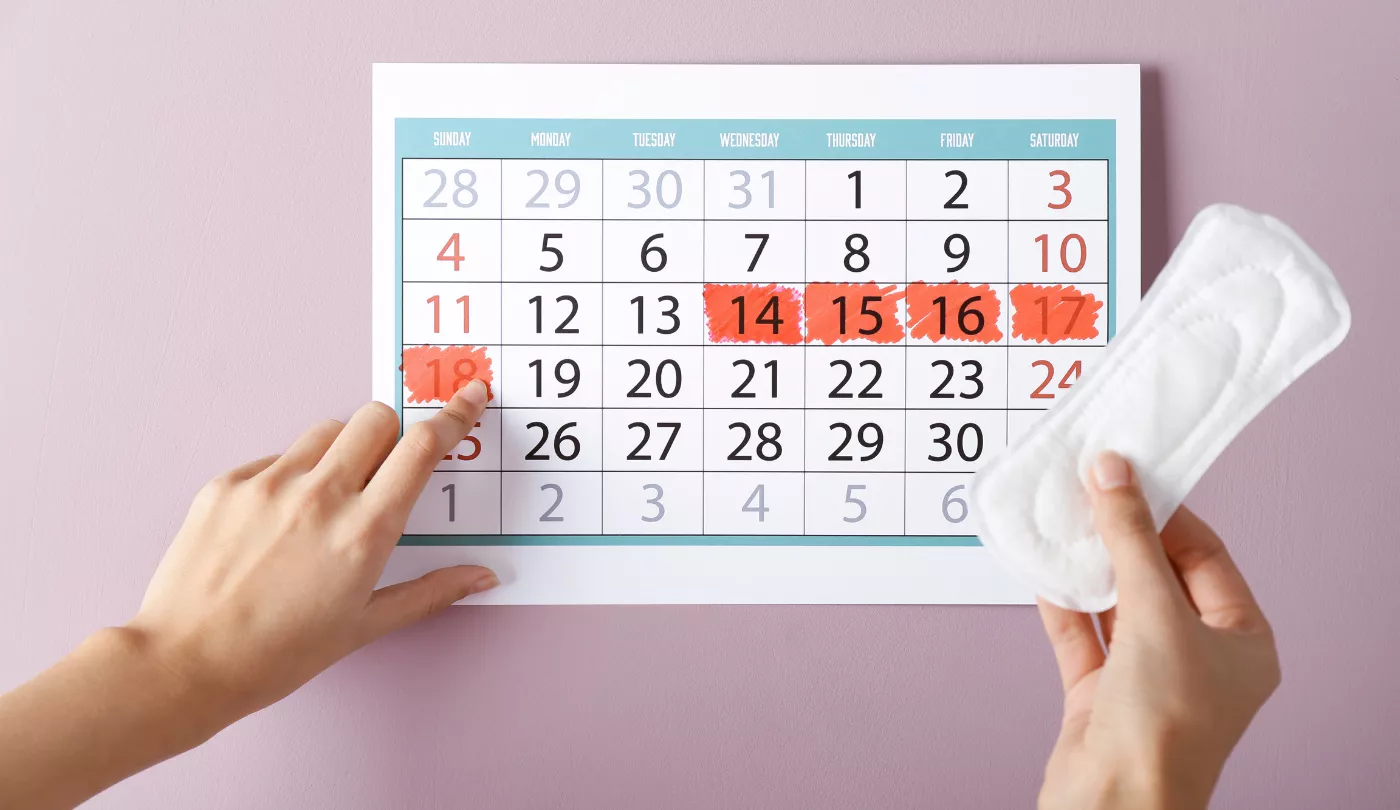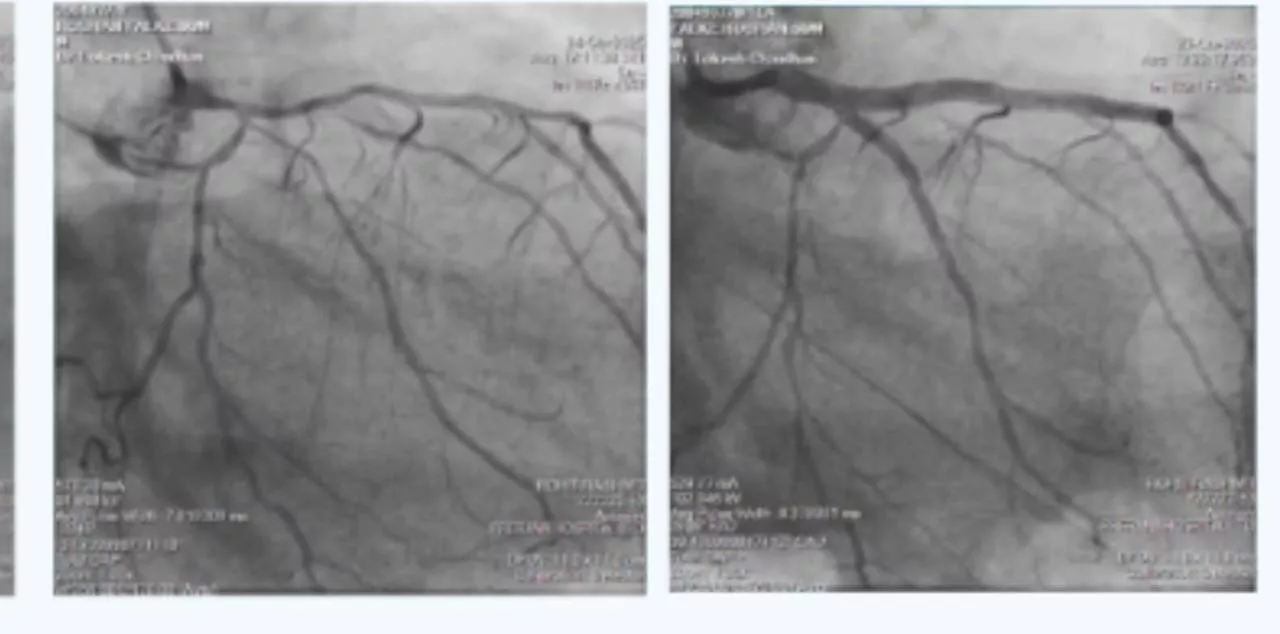You're as old as your arteries, which doesn't always equal to the number of candles on your birthday cake. Thomas Sydenham, a 17th century physician, once said that "a man is as old as his arteries." If your vascular age is greater than your chronological age, you may be at more risk of developing cardiovascular disease (CVD) later in life. If your real age is 45 and your vascular age is 55, your blood vessels are more like those of a healthy 55 year old. As a consequence, you are at a higher risk for developing CVD than that based solely on your age. Having a high heart age increases the risk of serious health issues including heart attack, stroke, chronic kidney disease and dementia. Making simple changes, like doing more activity or quitting smoking, can reduce this risk and it is recommended to lower the heart age before it is too late.
One of the cornerstones of the prevention of cardiovascular disease is identification of individuals at higher risk of developing this condition. Clinical care guidelines for the management of patients with cardiovascular risk factors currently require the measurement of cardiovascular risk as the starting point to establish therapeutic aims and treatment strategies. Absolute cardiovascular risk is a statistical and epidemiological concept that many patients may find difficult to understand. However, the concept of vascular age as the age of the arteries is a concept related to risk that might be more easily understood by all patients. The use of vascular age may thus help the physician explain the risk status of the patient and therefore improve patient compliance with therapeutic decisions. This age is calculated as the age a person would be with the same calculated cardiovascular risk but whose risk factors were all within normal ranges.
Your arteries age more slowly when nurtured with daily exercise, a healthful diet, and good relationships with family and friends. They age faster when they are constantly assaulted by cigarette smoke, foods laden with saturated and trans fats, chronic stress, and other traumas. Knowing your vascular age can give you a clearer picture of your heart's health. Currently available tools estimate artery ages are using pulse wave velocity, carotid intima-media thickness and calcium score on cardiac CT scan. Another toll that can be used easily at home by anybody is score system that relies on generally available information on age, cholesterol, and blood pressure.
Pulse wave velocity. Each heartbeat sends a wave of blood through the body's network of arteries. The stiffer the arteries, the faster this wave travels. Measuring the speed of the pulse wave provides information about how stiff or how flexible the arteries are. The speed of the wave can be converted into vascular age. Several companies make devices that measure pulse wave velocity in a doctor's office or at home using a small sensor that clips onto a finger.
Carotid intima-media thickness. The innermost layer of an artery's wall is called the intima; it provides a smooth surface for blood to flow through. The media is the middle layer; its muscle and elastic fibers let the vessel expand and contract with each heartbeat. The thicker the intima and the media, the more likely the artery is choked with cholesterol-filled atherosclerotic plaque. Using harmless ultrasound, a doctor can easily measure the intima-media thickness in the carotid arteries in the neck. This measurement can be used to estimate vascular age.
Framingham score. The landmark Framingham Heart Study has been following the health of thousands of residents of one Massachusetts town since 1948. Data accumulated in the study have helped researchers create a general cardiovascular risk profile. With answers to a few questions (see below), this tool estimates your chances of having a heart attack or stroke, needing bypass surgery or angioplasty, or developing peripheral vascular disease or heart failure. It also estimates your vascular age.
HEART age shows how many years people can expect to live heathily without a heart attack or stroke. Studies have shown that 1 in 10 men aged 50 taking its Heart Age Test have a heart age at least ten years older than they are. Analysis of 1.2 million test results shows the majority of people - 64 per cent - with a heart ten years older than their actual age are male. The Heart Age Test is really important as it gives an immediate idea of heart attack and stroke risk. Approximately 4 in 5 (79.2%) people over 30 have a heart age older than their chronological age, making them more likely to have a potentially fatal heart attack or stroke. Significant proportion of the public was unaware of their own cardiovascular risk factors. 4 in 5 people (78.8%) did not know what their cholesterol levels were, and almost half (49.5%) did not know or input their blood pressure. Factors like high blood pressure and high cholesterol, as well as smoking, diet and a lack of exercise, can increase someone’s risk of developing CVD. Telling people their heart is older than it should be is shown to be a more effective way to get them to change behaviour and improve cardiovascular health. A Spanish study has demonstrated that communication of a ‘heart age’ resulted in better smoking cessation rates, blood pressure and weight reductions over 12 months in both men and women compared to controls and those receiving standard 10 year risk estimates.
Knowing your heart age is vital to taking control of your health. Armed with this knowledge, you can start to make changes to help protect yourself against cruel and life changing events such as heart attack and stroke. The younger you start making small but significant changes, the greater the return on your in investment in your health. Research has shown that high blood pressure, high cholesterol, smoking, poor diet and a lack of exercise, as well as a lack of investing in your future health and fitness all contribute to increasing your risk of developing cardiovascular disease. Why not take action this World Heart Day and make the first steps to improve the health of your heart by logging on and using this simple and quick heart age online tool?
CVD risk factors
The main risk factors for CVD are:
- High blood pressure
- Smoking
- High cholesterol
- Diabetes
- Inactivity
- Being overweight or obese
- Family history of CVD
- Ethnic background
Other risk factors
- Age: CVD is most common in people over 50 and your risk of developing it increases as you get older
- Gender: men are more likely to develop CVD at an earlier age than women
- Diet: an unhealthy diet can lead to high cholesterol and high blood pressure
- Alcohol: excessive alcohol consumption can also increase your cholesterol and blood pressure levels, and contribute to weight gain
The Heart Age Calculator will ask you questions about:
- Your age and gender
- Your ethnicity and where you live
- Your health status including heart health, diabetes and kidney disease
- Smoking status
- Your weight and height (to work out your BMI or body mass index)
- Family history
- Cholesterol and blood pressure levels
- Get more physically active
- Tackle obesity
- Check your blood pressure
- Lower salt consumption
- Improve your diet
- Lower cholesterol
- Stop smoking
- De-stress
- Drink less alcohol
- Fresh air
Even though you may not have symptoms, having a heart age higher than your own age indicates an increased risk of developing serious illness in future. The Heart Age Tool gives an immediate indication of a person’s potential risk and what they can start doing to reduce the risk. Helping people to clearly understand their risk of heart disease, and the lifestyle and medication options for lowering it, can empower them to make significant improvements to their heart health with the potential to last a lifetime.






